Halina Prugar-Ketling
출생 : 1929-03-26, Warsaw, Poland

Editor

Editor
The esteemed transplantologist is the victim of a conspiracy of his colleagues, as a result of which his brain is transplanted into a pig.
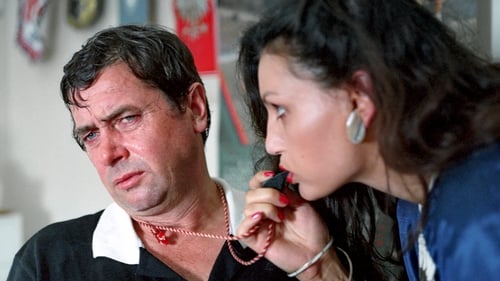
Editor
A comical behind the scenes look at the Polish Football League where everybody involved including the clubs’ management, players, and referees are trying to get some.

Editor
Russia, 1870. A group of young anarchist revolutionaries set out to overthrow the Czarist regime through violence. Their attacks create a climate of psychosis and mutual distrust among the population, but in reality, both revolutionaries and repressors are being manipulated by a diabolical individual.

Editor
2차대전이 발발하기 직전의 폴란드, 마을의 분위기는 뒤숭숭하지만 젊은 청년인 비텍은 의사가 되기 위해 열심히 공부를 한다. 도시에서 학교를 다니다 시험을 앞두고 잠시 시골 집에 돌아온 비텍은 우연히 아름다운 소녀를 만나 마음을 뺏긴다. 타데우시 콘비츠키가 쓴 동명의 소설이 원작이다.

Editor
A Pole who spent time in an internment camp during the war on the Swiss-German border, visits the site many years later and recalls these days. He meets with other Poles confined in the same camp, including several women, in whose he had romantic interests.

Editor
In May of 1983, a man turns 49 and, with his 17-year old son, journeys to the village in Baden that he left 40 years before. He wants to discover what happened then, the truth about an affair his mother had with a young Polish prisoner of war, how the authorities came to learn of it, the lovers' arrest, and the aftermath. While his son takes Polaroid photographs, he retraces the steps of his childhood and interviews those who should remember. The story is disclosed in flashbacks that focus on the lovers (Paulina and Stanislaus), on a jealous and conniving neighbor, and on Mayer, the local SS commander who wants to find a way out of inevitable consequences.
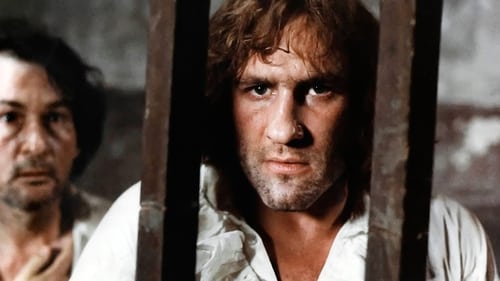
Editor
프랑스 혁명이 민중혁명의 국면에 접어들고 과거 혁명세력이 주도권을 잡은 이후, 로베스 삐에르의 공포정치가 혁명을 압도하는상황을 배경으로 하고 있다. 이때 벌어지는 당통과 로베스 삐에르의 대립은 정치적, 이념적 갈등, 그리고 혁명의 자기파괴적 달레마와 모순의 문제를 내포한 것이다. 당통은 로베스 삐에르가 혁명의 이름으로 혁명을 파괴하고, 또한 독재를 경계한다고 하면서도 실제로 독재로 가고 있다고 공격한다. 따라서 국민의 적은바로 혁명정부이며, 이 정부를 이끄는 공공안전위원회의 테러리즘과 전체주의가 혁명을 배반하는 것이라 비난한다. 반면 로베스 삐에르는 중산 계급을 중심으로 시민의 우상이 되고 있는 당통을 처형한 후에 남는 것은 오로지 공포정치 밖에 없음을 알면서도, 당통에 대한 재판에 질 경우 혁명은 끝이 난다는 위기감 때문에 당통은 반혁명자로 처형할 것을 결심하기에 이른다. 당통은 관용과 평화와 정의를 주장하는 자신의 희생이 마침내 민중의눈을 뜨게할 것이라 스스로 믿고 처형 후에 자신의 잘려진 머리를 민중드르에게 보여줄 것을 당부하였지만 민중은 그의 뜻에 따르지 않았다. 로베스 삐에르는 그의 처형 순간 혁명이 잘못돼가고 있음을 자인하지만....
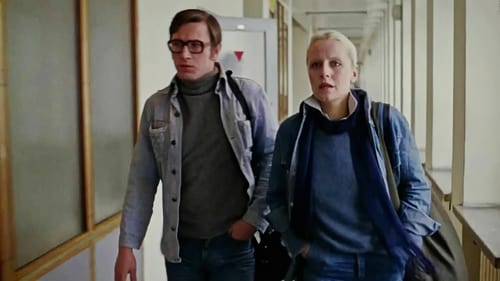
Editor
이 영화는 1980년대 말 폴란드의 공산정권을 붕괴시킨 거대한 자유노조운동에 대한 이야기이다. 속편에 등장했던 다큐멘터리 감독 아그니에츠카(크리스티나 잔다 분)가 다시 모습을 드러내는데 그녀는 폴란드 노동자의 영웅이었던 비르쿠트의 아들 마테우시(예르지 래드지빌로빅츠 분)의 아내가 되어있다. 마테우시는 1980년 그단스크에서 발생한 파업에서 자유노조운동에 앞선 주동자로, 지식인들이 노조에 가입하도록 설득한다. 영화는 가까운 미래의 화면과 그단스크의 새로운 파업을 교차로 보여줌으로써 결과에 대한 예상과 함께 기대를 하게 한다.
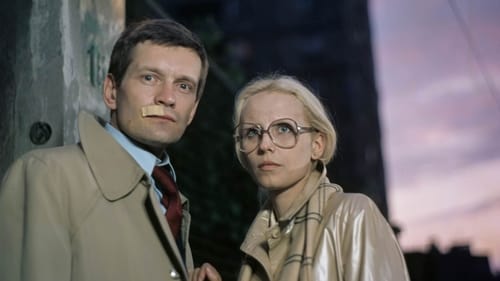
Editor
A violinist in a provincial Polish orchestra, whose husband is the director of the ensemble, on a visit to the US ties up with the world- renowned symphony conductor. As it turns out he was once in love with violinist's mother. The conductor, a slightly unstable hypochondriac, returns to Poland to lead the provincial orchestra. He also tries to revive old love affair using the violinist as a surrogate of her mother. Her husband is resentful of the conductor for both personal and professional reasons.
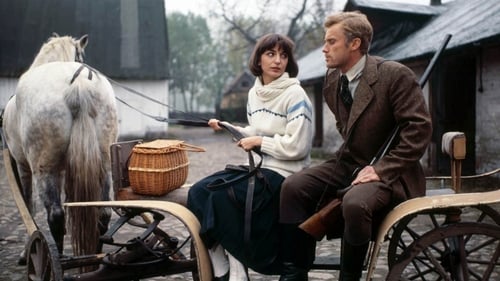
Editor
Set in the late '20s. A thirtyish young man, who heads a small factory, faints at the funeral of a close friend. He decides to go home to his aunt and uncle for a while, but gets involved with a family of five women who had been in love with him at one time though he had apparently loved only one, who, unknown to him, has died since his departure. The women are mainly disillusioned with life or estranged from husbands while the youngest has a crush on him.
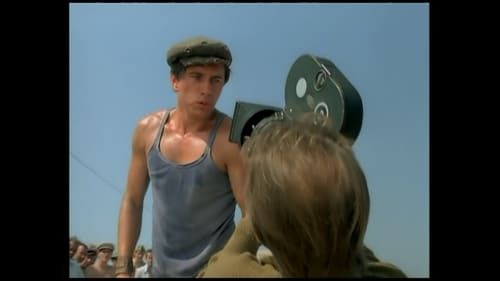
Editor
Man of Marble is a Polish film about a student making a film about a bricklayer who was once idolized. She interviews people who knew him and finds old footage that lead to an unfolding mystery that causes her producer to cancel the project.
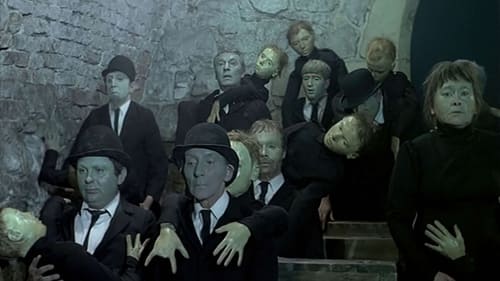
Editor
The Dead Class (1975), by Tadeusz Kantor and the Cricot 2 company, is considered one of the most innovative and influential works of twentieth-century theatre. The breakthrough first version of the production - performed to great critical acclaim, but only rarely seen live by audiences outside Poland - was documented on film in 1976 by the Oscar-winning director Andrzej Wajda.
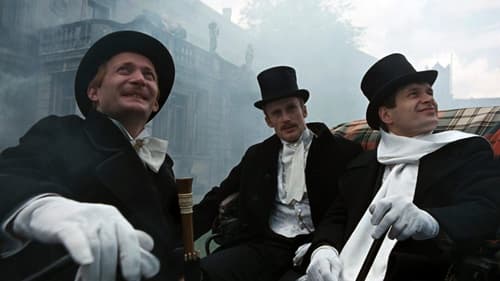
Editor
안제이 바이다 감독의 약속의 땅은 특정 시대, 특정 장소의 폴란드에 대한 다층적인 탐구를 담은 찰스 디킨스풍의 묘사가 두드러진 영화다. 19세기 말 우츠 시는 유럽 섬유 산업의 중심지로, 전세계에서 가장 큰 유대인 집단이 장악하고 있었다. 이곳은 수천 명에 달하는 실업가들의 탐욕을 채워줄 무한한 기회가 제공되는 초기 자본주의자들의 땅이다. 안제이 바이다 감독은 의욕에 찬 세 명의 친구들에 초점을 맞춰 이야기를 전개하지만 동시에 수많은 인물들에 대한 세밀한 관찰도 놓치지 않는다. 사회 내부에서의 계급 갈등, 인간의 어두운 면, 자본주의 체제의 본질 등에 대한 완벽한 묘사가 눈에 띄는 작품이다. (2012년 제17회 부산국제영화제)

Editor
Two young men from a town near Lodz attack and rob a taxi driver, hoping he will have a lot of cash. Wanted by the Militia, they run away through Poland.
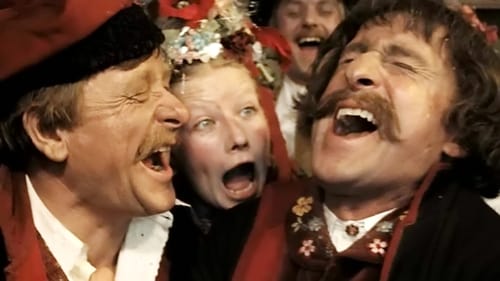
Editor
Set at the turn of the century, the story concerns a Polish poet living in Cracow who has decided to marry a peasant girl. The wedding is attended by a heterogenous group of people from all strata of Polish society, who dance, get drunk and lament Poland's 100-year-long division under Russia, Prussia, and Austria. The bridegroom, a painter friend, and a journalist each in turn is confronted with spectres of Polish past. In the end a call to arms is called but turns out to be a hoax.
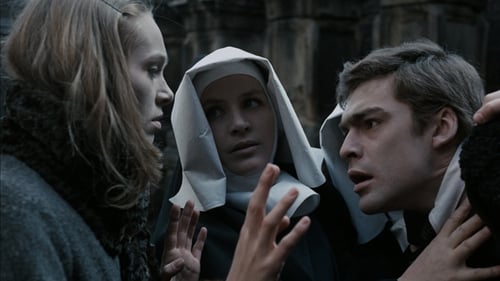
Editor
제2차 세계 대전 중 나치의 폴란드 점령기 시절, 독일군 병사들이 미할의 집에 쳐들어와 아내와 아들, 어머니를 학살한다. 숲속에 숨어있던 미할과 그의 아버지는 목숨은 건졌지만 가족의 학살을 막진 못했다. 미할은 저항군에 합류하기로 결심하지만, 합류하기도 전에 게슈타포에게 들켜 쫓기는 신세가 된다. 게슈타포를 피해 도망치던 중 미할과 비슷한 복장을 입은 사람이 미할로 오인돼 대신 체포되며 추격전은 끝나게 된다. 총소리를 듣고 나온 아파트 주민으로 보이는 임산부는 게슈타포에 체포된 남자를 보며 울먹인다. 체포된 남자가 그녀의 남편이기 때문이다. 그 장면을 목격한 미할은 자신 대신 체포된 남자보다, 그 남자의 아내인 임산부를 보고 더 놀란다. 임산부의 외모가 얼마 전 학살당한 자신의 부인과 너무도 닮았기 때문이다. 게슈타포가 떠나간 뒤 임산부에 집에 들어가 보는 미할, 임산부는 출산이 임박했는지 고통스러워한다. 미할은 얼떨결에 그녀의 출산을 돕게 된다. 출산이 끝나자 미할은 긴장이 풀렸는지 아님, 게슈타포가 쏜 총에 맞은 어깨 출혈 때문인지 혼절하게 된다. 이번엔 반대로 임산부가 미할의 어깨총상을 치료해 주며 미할을 간호한다. 자신 대신 체포당한 남편에 대한 죄책감 때문일까? 아님 죽은 아내와 너무 닮아서일까? 미할은 발진티푸스 센터에서 백신을 만들기 위해 번식되는 실험용 '이'에 피를 공급하며 식량배급을 받는다. '이'에게 피를 빨려 식량배급카드를 받고, 그 식량으로 임산부에게 밀가루와 감자를 나눠준다. 미할대신 남편이 잡혀갔음에도 여자는 게슈타포에 사실을 알리지 않고 미할이 주는 밀가루와 감자를 받아 생활한다. 미할은 여자와 갓난아이를 보며 잃어버렸던 가족을 다시 만나는 듯한 기묘한 체험을 하게 된다.

Editor
Takes place in a prewar Poland. A tubercular young man comes to stay with his brother on a farm. He is in love with life and constantly plays 1930's music on a piano. He gets involved with his brother's problems and also becomes the lover of a simpleminded farm girl. The brother's dead wife may have had an affair with the hired man who is to marry the farm girl. His daughter will not confirm his suspicions. But the brother's death leads to his acceptance of the past, forgiving his wife's memory and making up with his little daughter.
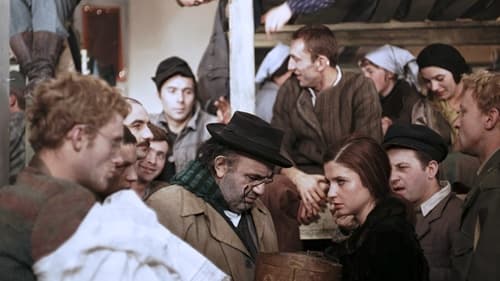
Editor
Film opens with the mad rush of haphazard freedom as the concentration camps are liberated. Men are trying to grab food, change clothes, bury their tormentors they find alive. Then they are herded into other camps as the Allies try to devise policy to control the situation. A young poet who cannot quite find himself in this new situation, meets a headstrong Jewish young girl who wants him to run off with her, to the West. He cannot cope with her growing demands for affection, while still harboring the hatred for the Germans and disdain for his fellow men who quickly revert to petty enmities.

Editor
Wlodek is a young man stuck in a dead-end job at the local library who lives with his harridan wife and critical in-laws in a small apartment. When Wlodek draws the interest of a library patron, the beautiful young woman encourages him to strive for better things in his life and professional career. Together, the two take off for a three-day affair, but surprises could await Wlodek upon his return home.
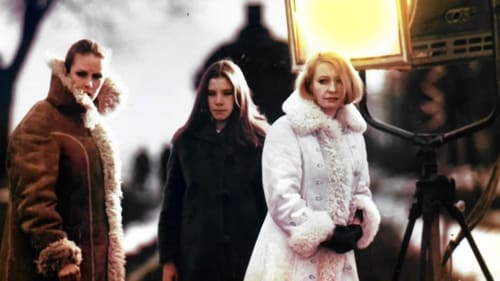
Editor
Wajda's homage to Zbigniew Cybulski, the "Polish James Dean" who starred in the director's ASHES AND DIAMONDS and died young. The movie follows the tribulations of a director attempting to make a movie with a Cybulski-like star who never shows up.
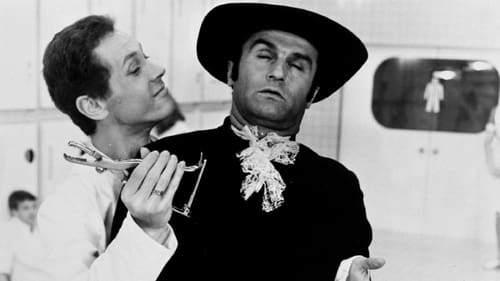
Editor
Based on the novel by Stanislaw Lem (Solaris). The main character, race car driver Ryszard Fox, is involved in many car accidents. After each car crash he gets a transplant for one or another internal organ. After a while there is a question: Who really is Ryszard Fox?

Editor
A young boy must go to school with his father.
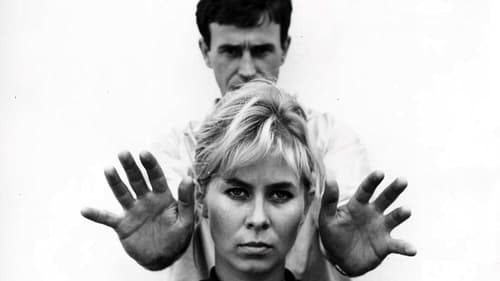
Editor
한 무리의 청년들이 이상한 의식을 시도하며 사회의 낡은 관습과 기성 세대를 비판한다. 이 중 한 명인 주인공은 마치 연극 무대처럼 텅빈 거리로 나와 이곳저곳을 돌아다닌다. 그러는 동안 주류 사회의 위선과 경직성, 사람들의 공허와 외로움이 초현실적인 분위기 속에서 드러난다. 현실의 문제를 다루면서도 핍진성의 요소를 의도적으로 빗겨가는 실험적 연출이 돋보이는 작품.

Editor
The movie "L'instant de la paix" consists of three segments: 1. "Les rideaux blancs" (France) 2. "Berlin N 65" (West Germany) 3. "Matura" (Poland)

Editor

Editor
"Waiting for Godot" on ice and snow, without words. Against a barren winter landscape, a figure approaches: it's a man, pulling a small sleigh on which another man sits, plucking a dead bird. They stop to trade places; the one now on the sleigh takes out his knitting. Accidents, misunderstandings, disagreements, and an outright fight await our absurd protagonists as their trip to nowhere continues, first with one pulling, then the other. What if they were to lose the sleigh? What rules of civilization and partnership would guide them then?

Editor
On their way to an afternoon on the lake, husband and wife Andrzej and Krystyna nearly run over a young hitchhiker. Inviting the young man onto the boat with them, Andrzej begins to subtly torment him; the hitchhiker responds by making overtures toward Krystyna. When the hitchhiker is accidentally knocked overboard, the husband's panic results in unexpected consequences.

Editor
Zbigniew Cybulski and Sonja Ziemann play lovers struggling to find happiness and privacy in overcrowded Warsaw. The movie shows an honest picture of life in a war-damaged city, contrasting the characters' difficulties with their dreams of a better life. It was banned in Poland in 1958 and would not been seen anywhere until its European release one year later.

























